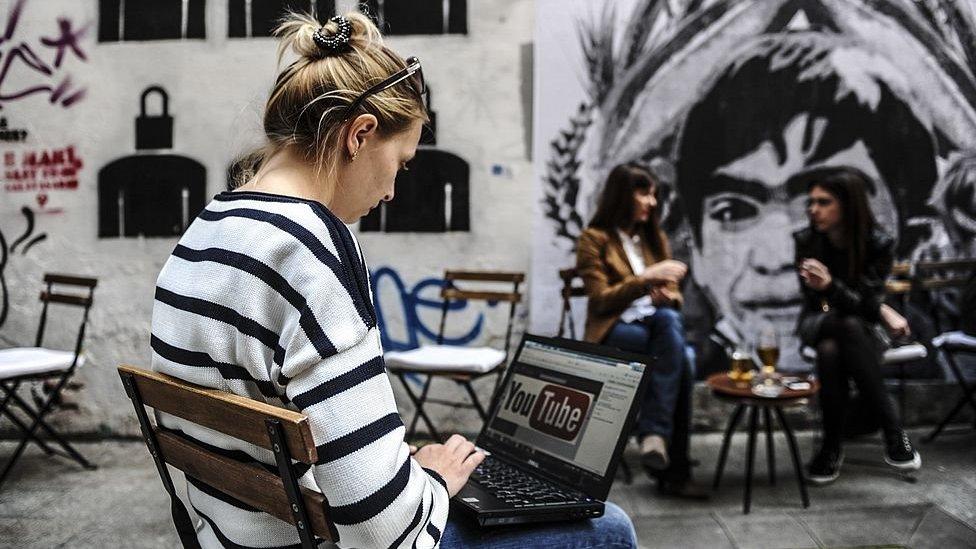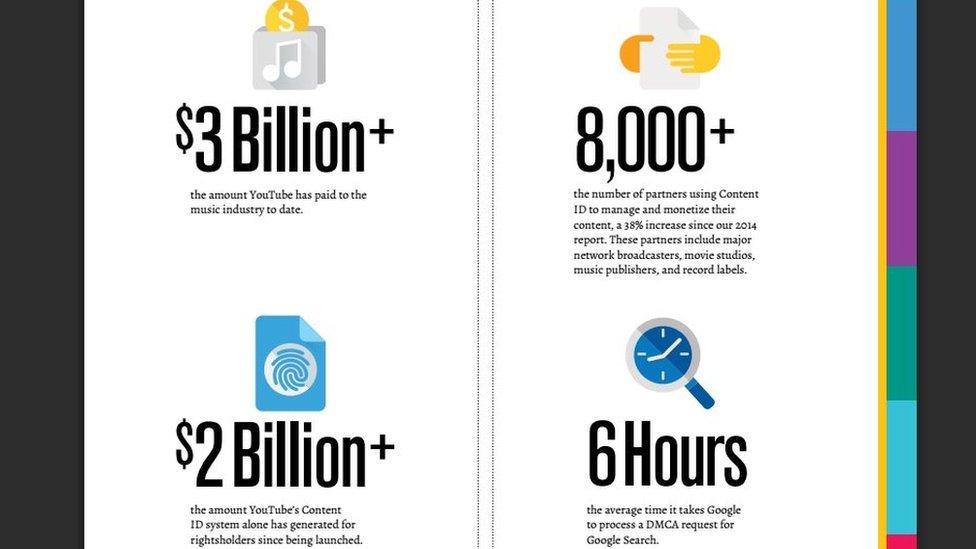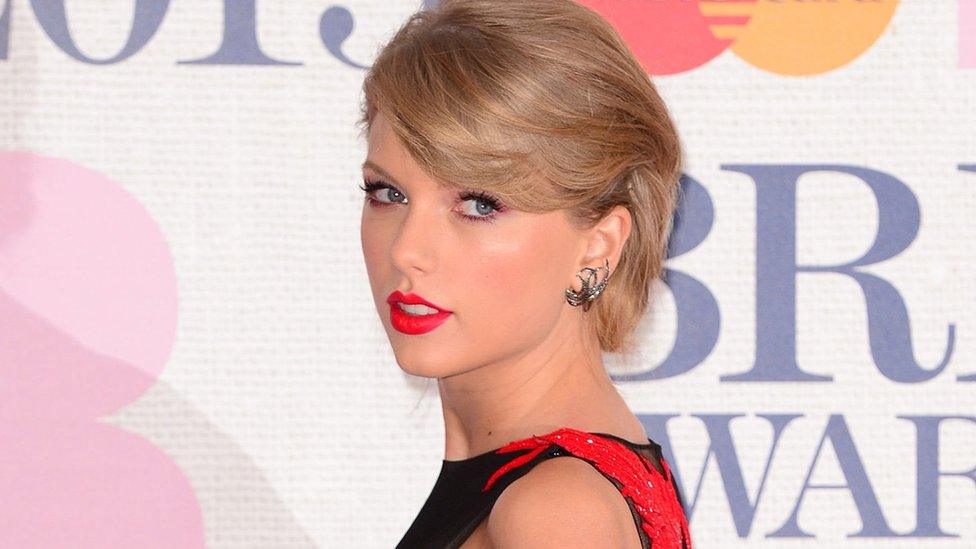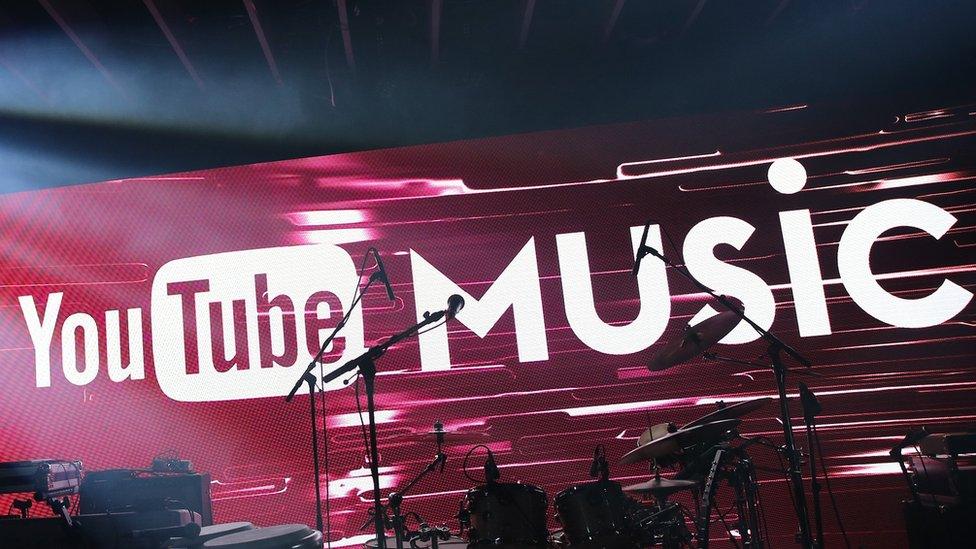Google piracy report criticised by music industry
- Published

Music industry leaders think YouTube does not do enough to tackle piracy
Google says it has created more than $2bn (£1.5bn) for content owners via YouTube's piracy-tackling Content ID tool.
The figure was contained in a report issued by the company entitled How Google Fights Piracy, external.
But the BPI, which represents the UK's recorded music industry, dismissed the document as "greenwash".
It says the firm remains "one of the key enablers of piracy on the planet" and had the expertise to do better.
The term greenwashing is typically used to attack disinformation used by organisations to make out they are more eco-friendly than they actually are. The BPI said it felt the term best captured the situation.
'Ineffective efforts'
Content ID was launched in 2014.
It is designed to detect copyright-infringing material and allow the rights holders the choice of whether to block it or make money from ads attached to the clips.
Google says it has invested more than $60m in the technology.

Google's report states it has paid billions of dollars to the media industry
"The music industry, for example, chooses to monetise over 95% of sound recording claims," the report states.
"Our continued investments in Content ID have resulted in ongoing improvements to its function - from its inception as an audio-only detection system, it has grown to detect video and can now even detect melodies, helping further stymie bad actors' efforts to fool the system."
Google said that more than 50 million reference files were now contained in Content ID's database.
It added that the system accounted for the majority of the payments it had made to the music industry.
The BPI is not the only organisation to have taken issue with the report.
The International Federation of the Phonographic Industry (IFPI) described Content ID as being "ineffective".
"Record companies and publishers estimate that Content ID fails to identify 20-40% of their recordings."
It also suggested a recent change to Google Search's algorithm had failed to reduce piracy.
"Google's search engine continues to direct internet users to unlicensed music on a large scale," it said.
The row comes at a time when music labels are renegotiating their deals with Google.

Analysis: Mark Savage, BBC Music reporter

Two billion dollars. It's the sort of figure Dr Evil might come up with… but it's not enough for the music industry.
It says that YouTube's business is built on music, but it isn't paying a fair price. The BPI's latest figures suggest that British labels made just £24.4m from video streaming last year, compared to the £146m generated by audio streaming sites like Spotify, Apple Music and, ironically, Google's own Google Play service.
YouTube, meanwhile, claims its users are not natural music consumers - so any money it generates is essentially a bonus. What's more, when fans upload music unofficially, it gives artists and labels the chance to turn those videos into a new revenue stream.
The rhetoric is ramping up as the labels negotiate new contracts with Google this summer.
But who holds the upper hand: The people that create the music, or the ones who broadcast it to billions of fans? We'll have to wait and see.


Taylor Swift wants it to be easier to sue sites that host copyright-infringing clips
Some artists - including Taylor Swift, U2 and Sir Paul McCartney - have suggested US copyright law should be amended to make it easier for them to sue YouTube and other sites that host their material.
At present, services are protected if the offending clips were uploaded by members of the public.
"Protecting and fostering creativity online is a priority for Google," blogged Google's senior policy counsel, external Katherine Oyama.
"We remain committed to investing in efforts to address copyright infringement online, collaborating with rights holders and protecting the interests of our users."
- Published21 June 2016

- Published20 May 2016
- Published12 May 2016
